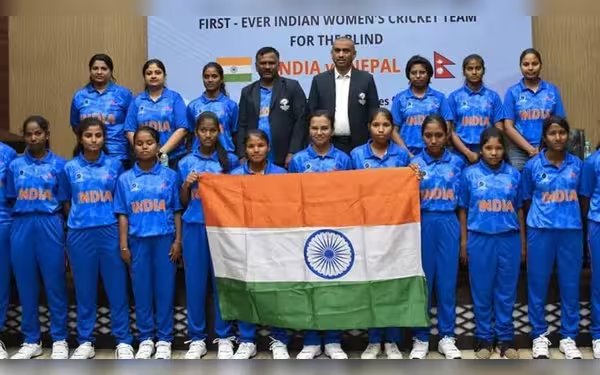Thursday, December 12, 2024 03:43 PM
WBCC Revokes India's Hosting Rights for Blind Women's Cricket World Cup
- India loses hosting rights for Blind Women's Cricket World Cup.
- WBCC emphasizes participation over political disagreements.
- Blind cricket promotes inclusivity and empowerment for women.
 Image Credits: en.dailypakistan.com.pk
Image Credits: en.dailypakistan.com.pkThe WBCC revokes India's hosting rights for the Blind Women's Cricket World Cup due to its withdrawal from the Men's Blind T20 World Cup.
MULTAN – In a significant turn of events, the World Blind Cricket Council (WBCC) has officially revoked the hosting rights of India for the upcoming Blind Women’s Cricket World Cup. This decision was made during a meeting held in Multan, where the council members engaged in a heated discussion regarding India’s refusal to send its team to Pakistan for the ongoing Men’s Blind T20 World Cup.
The Blind Women’s Cricket World Cup is an important event that showcases the talents of visually impaired female cricketers from around the globe. It is a platform that not only promotes the sport but also empowers women with disabilities, allowing them to compete at an international level. The decision to strip India of its hosting rights comes as a disappointment to many, especially considering the efforts made to promote inclusivity in sports.
India’s withdrawal from the Men’s Blind T20 World Cup has raised eyebrows and sparked discussions about sportsmanship and cooperation among nations. The refusal to participate is seen as a setback, not just for the teams involved, but for the spirit of cricket itself, which is built on camaraderie and mutual respect. The WBCC’s decision reflects a strong stance on the importance of participation and collaboration in international sports.
As the cricketing world watches closely, the implications of this decision could be far-reaching. It raises questions about future collaborations and the potential for hosting rights in international tournaments. The WBCC’s move serves as a reminder that sports should transcend political differences and foster unity among nations.
The revocation of India’s hosting rights for the Blind Women’s Cricket World Cup is a pivotal moment in the realm of blind cricket. It emphasizes the need for countries to prioritize participation and cooperation over political disagreements. As we look forward to the upcoming tournament, it is crucial for all stakeholders to reflect on the values of sportsmanship and inclusivity, ensuring that the spirit of the game remains intact for future generations.













